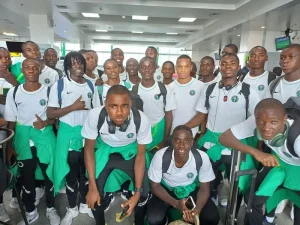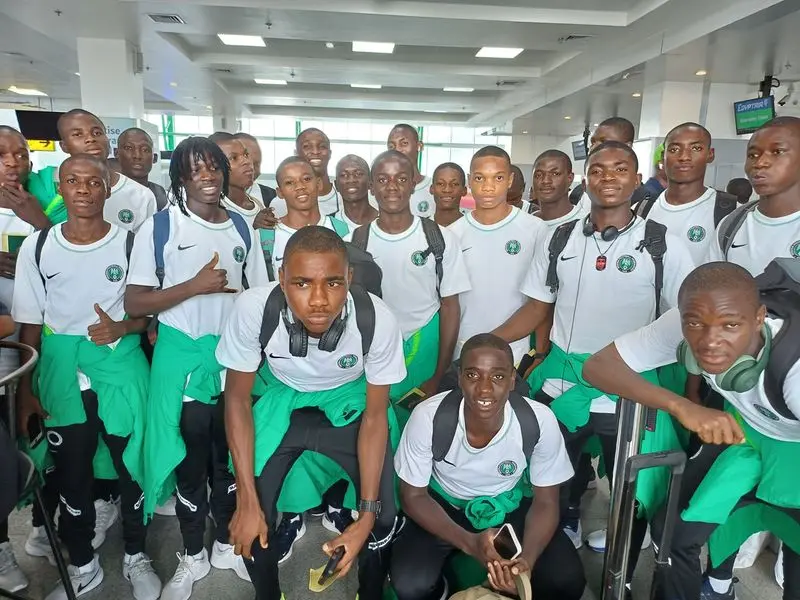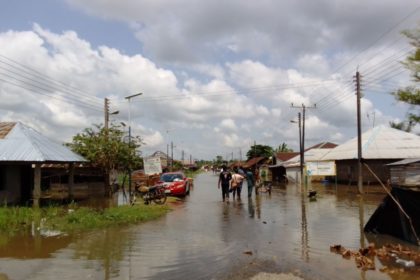
By Adeyemi Adekunle
Nigeria’s U-17 national team, the Golden Eaglets, will be absent from the 2025 U-17 Africa Cup of Nations (AFCON) in Morocco following the Confederation of African Football’s (CAF) announcement of qualification slots for the tournament. This development marks another setback for Nigeria’s age-grade football, as the five-time world champions will now miss consecutive FIFA U-17 World Cups.
Despite finishing third in the 2024 WAFU B U-17 Championship in Ghana, Nigeria failed to secure an automatic qualification spot. The two available slots for the region were claimed by Ivory Coast and Burkina Faso, leaving the Golden Eaglets without a direct path to the tournament. CAF’s decision to expand the U-17 AFCON to accommodate more teams did not favor Nigeria, as the additional four slots were distributed among The Gambia, Tunisia, and two representatives from the CECAFA and COSAFA regions. The remaining two spots will go to the top two teams from the UNIFFAC region qualifiers, set to take place in Cameroon from February 16 to 28.
The exclusion of the Golden Eaglets from the tournament means Nigeria will once again miss out on the FIFA U-17 World Cup, set to be held in Qatar in 2025. The team had already failed to qualify for the previous edition in Indonesia, after finishing outside the top four at the 2023 U-17 AFCON in Algeria. This back-to-back absence from global competition represents a worrying trend for a nation that has historically dominated the U-17 category.
Nigeria remains the most successful team in FIFA U-17 World Cup history, having lifted the trophy five times. However, recent years have seen a decline in their performances, raising concerns about the development of young talents in the country. The failure to qualify for major tournaments not only denies the players valuable international exposure but also affects Nigeria’s standing as a powerhouse in youth football.
CAF’s expansion of the U-17 AFCON came after FIFA’s decision to increase Africa’s World Cup slots to 10 teams for the 2025 tournament in Qatar. The move was expected to provide more opportunities for African nations to compete on the global stage. However, Nigeria’s inability to capitalize on the changes has sparked debate about the country’s football administration and talent development at the grassroots level.
For a nation that has produced legendary players through its U-17 program, the absence of the Golden Eaglets from back-to-back World Cups is a cause for reflection. The inability to secure a place in Morocco suggests that Nigeria’s dominance in youth football is waning, and urgent steps may be needed to revamp the system. Football analysts have pointed to inconsistent scouting, inadequate preparation, and administrative challenges as some of the key factors behind the team’s recent struggles.
The disappointment of missing another major tournament will be felt deeply, especially by the young players who had hopes of showcasing their talents on the continental and global stages. For many, the U-17 World Cup has been a stepping stone to successful professional careers, and the absence from these competitions could limit the opportunities available to the next generation of Nigerian footballers.
As Nigeria looks ahead, there will be discussions on how to rebuild the Golden Eaglets and restore their competitive edge. Stronger talent identification, better coaching structures, and improved tournament preparations will be essential if the country hopes to return to the top of African and global youth football.




